Mobile Learning Centres at the Aasraa Trust
Dhunela/India
Since 2010, the Aasraa Trust, ASED’s partner has been caring for and educating the children from the slum communities of Dehradun. Aasraa reaches the out-of-school, rag-picking, and begging children in the age group of 4-12 years through its ‘Street Smart Programs’ which includes the Mobile Learning Centres (MLC). The Street Smart initiative promotes holistic personality development through basic literacy and language and cognitive development, healthcare, and nutrition.
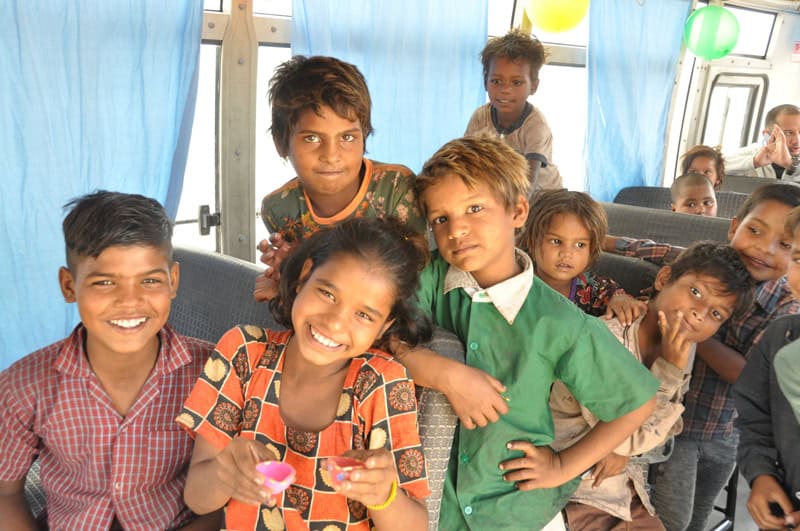
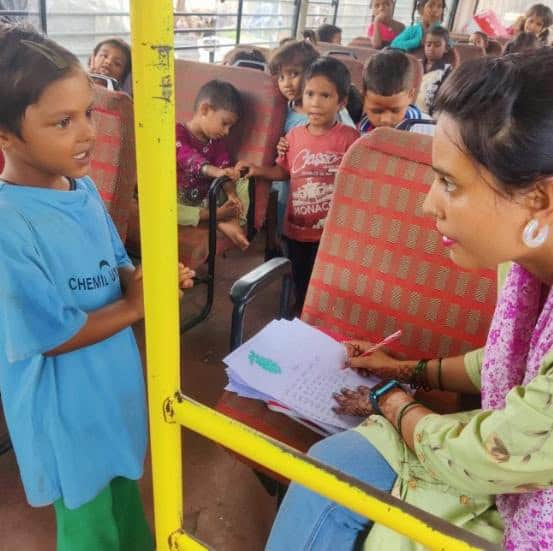
Academic Activities: The academic programme focused on foundational literacy and numeracy through interactive tools such as Teaching Learning Materials (TLMs) and Computer-Aided Learning (CAL). Each day begins with structured assemblies combining rhymes, exercise, sharing experiences, and meditation. Baseline assessments in Hindi, English, and Mathematics are used to tailor learning plans, with end-line evaluations. The outreach team actively identified and enrolled new students throughout the year via family assessments.
Teachers Training & Workshop: To enhance teaching quality, Aasraa conducted seven workshops attended by teachers from both Mobile Learning Centres. Sessions focused on foundational literacy and numeracy, classroom management, or Social, Emotional, and Ethical Learning (SEEL). Educators are trained in age-appropriate activities, active listening, and child development milestones. Additional topics included documentation practices, community engagement, and legal awareness through POSH training. A dedicated module on Hindi teaching pedagogy helped educators improve their methods for delivering effective language instruction.
Parents Teachers Meetings and Capacity Building: Parental involvement was actively encouraged through quarterly Parent Teachers Meetings (PTM), which served both as academic reviews and as platforms for community education. These sessions went beyond traditional reporting and engaged parents in meaningful dialogue around issues affecting their children’s well-being. Topics such as the importance of school attendance, the impact of frequent migration on learning, and methods for supporting children’s education at home were discussed. Notably, awareness sessions were conducted on child protection, including guidance on identifying safe and unsafe touch, and how to access help through India’s Child Helpline (1098). These interactions not only strengthened the bond between families and educators but also empowered parents as active partners in their children’s education.
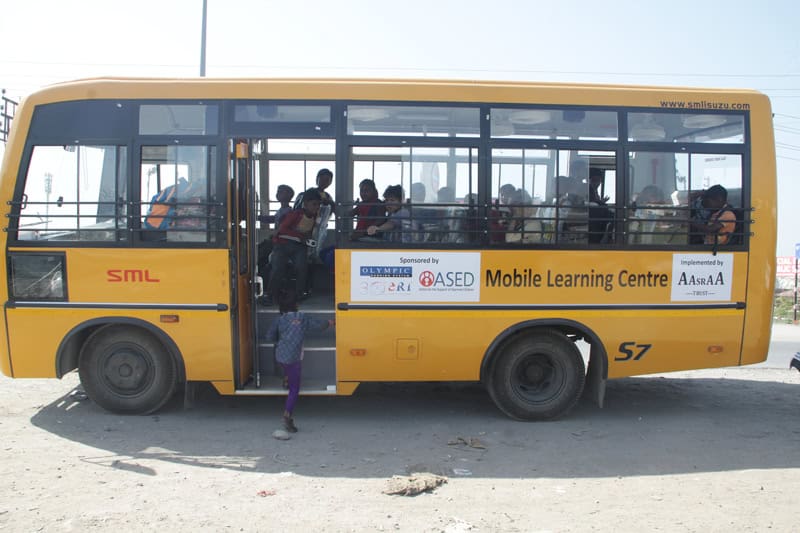
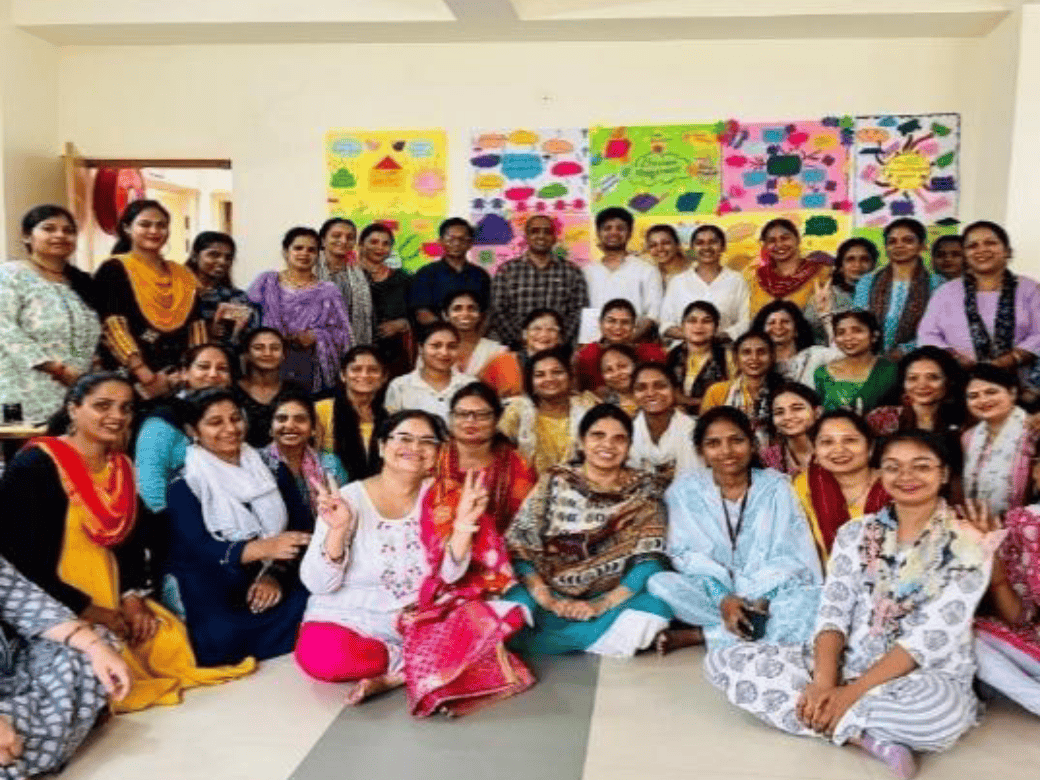
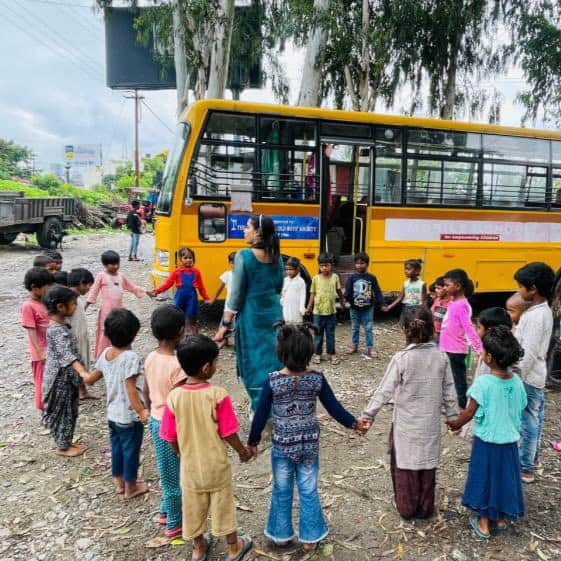
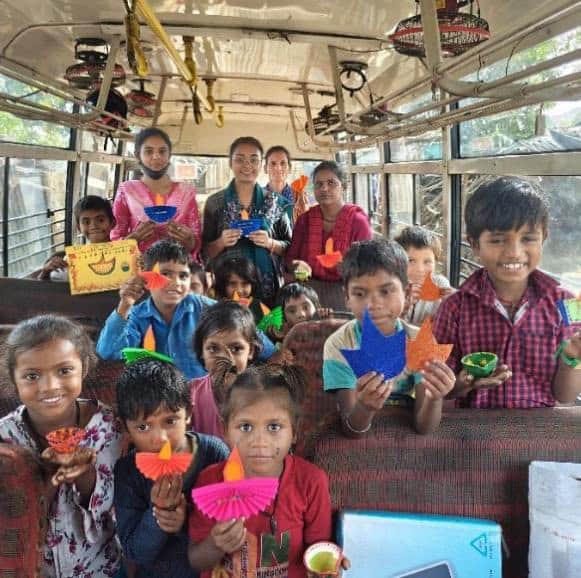
Events and Celebration: Celebrations played an integral role in creating a joyful and inclusive atmosphere at the centres. Cultural and national festivals like Christmas, Makar Sankranti, Basant Panchami, and Republic Day were enthusiastically commemorated enthusiasm and active involvement from both students and staff. These events helped the students gain a deeper appreciation for diversity and learn the values of unity, inclusion, and harmony.
Out of Classroom Experiences: Children from MLC II visited Beanstalk, an initiative designed to provide children with their own space to explore and unfold themselves. During the visit, students engaged in exploratory play, interactive storytelling, and collaborative games with peers.